August 30, 2025 | 21:59 GMT +7
August 30, 2025 | 21:59 GMT +7
Hotline: 0913.378.918
August 30, 2025 | 21:59 GMT +7
Hotline: 0913.378.918
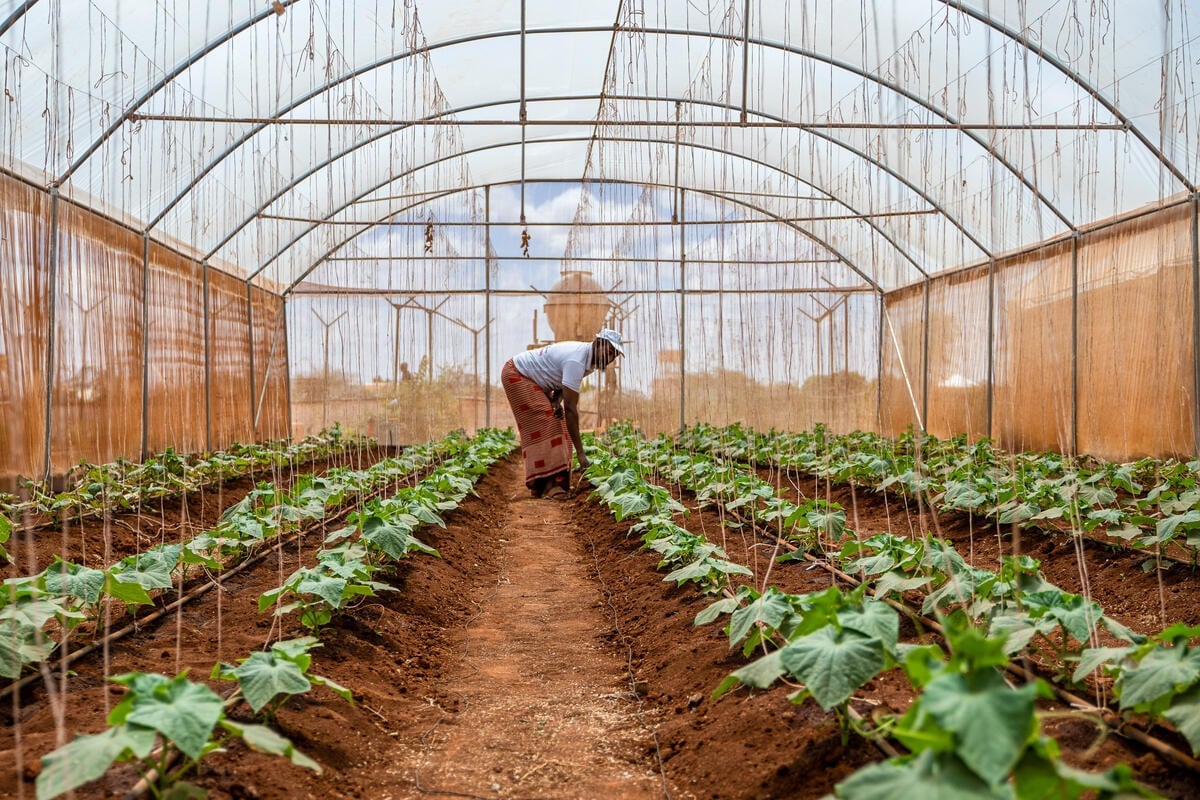
A cooperative farm in Barwaaqo Village, Somalia.
Ugbaad – the Somali name for a new project that aims to boost climate resilient agriculture – translates as “fresh sprouting pasture”, symbolizing hope. The Climate Resilient Agriculture project bearing its name will tackle persistent challenges in Somalia, a country where nearly two-thirds of the population depend on the agricultural sector and in which climatic shocks and conflict have pushed nearly a quarter of the population into acute food insecurity – a number expected to rise in coming months.
The seven-year project is pioneering in its scale and scope. Steered by the Federal Government and the Food and Agriculture Organization of the United Nations (FAO), with a $79.7 million investment from the Green Climate Fund (GCF), it will contribute to communities and agricultural systems through building resilience to climate change and enacting initiatives that restore landscapes, reducing the impact of climate change.
“In this era of escalating climate risk, the Ugbaad project will support resilient livelihoods through sustainable agricultural practices, more productive landscapes, and greater access to water,” said Henry Gonzalez, the Green Climate Fund’s Chief Investment Officer. “Our priority, in partnership with our implementing partners, is to ensure that vulnerable communities have access to climate finance.”
Approved in late 2024, this is the first single-country investment in Somalia for the GCF, which has more than 286 projects in more than 133 developing countries. The investment builds on the country’s engagement in a two-year Green Climate Fund Readiness Programme, enhancing its capacity to access and manage climate finance, develop GCF Country Programme and develop investment concept notes.
Community participation
The growing number and increasing intensity of droughts in Somalia present a particular threat to pastoralists, who make up a majority of Somalia’s population. Droughts typically lead to households losing 40 percent of their livestock because they can’t access fodder. This, in turn, leads to reductions in household income, surges in displaced peoples, food and nutrition insecurity, and health, education, and security problems.
The project will support community participation in the restoration of productive landscapes while strengthening governance and the government’s ability to provide services including climate and meteorological information. Progress in these areas will help transform unsustainable, unproductive, and maladapted agricultural production systems to more resilient and productive agricultural practices.
The project also aims to prevent and repair damage from serious flooding events, which have become almost yearly occurrences over the recent past especially along the Jubba and Shabelle rivers, destroying property and livelihoods.
Vulnerable households and villages will receive support to access water and other resources, as well as benefit from expanded meteorological alerts. The capacity of federal and state level ministries to deal with these crises will also be strengthened, with such support eventually expanded to reach national research centers and universities, farmers’ associations and civil-society organizations.
Expected impact in numbers
The project will benefit over two million people, over half of which are direct beneficiaries.Restore over 40,000 hectares of productive landscapes through locally led approach.Rehabilitate 15 km of secondary and tertiary irrigation canals and 70 km of rural roads to make infrastructure more resilient to the effects of climate change, Increase income of 15 000 people by at least 15 percent with the development of climate-resilient value chains.
Improve access to water for 900 000 people; and access to climate information services for 950 000 people.
Local actors are protagonists
‘’The Ugbaad project will be implemented through a series of partnerships and collaborations with local communities, the government and other stakeholders,” said FAO Assistant Director-General and Regional Representative for Africa Abebe Haile-Gabriel.
“This approach recognizes both the challenges communities face and the opportunities to advance locally led adaptation efforts.”By combining technical expertise with local solutions, FAO will work with the Government to reach farmers, agropastoralists, and pastoralists in Somalia to bolster their resilience and ability to thrive in the face of climate challenges."
Ugbaad is aligned with Somalia’s National Transformation Plan and was welcomed by H.E. Deputy Prime Minister Salah Jama.
“Somalia is taking bold steps to ensure climate resilience is at the heart of our national development agenda,” the Prime Minister said at the launch of the project. “Through the Ugbaad project, we are integrating climate action into our National Transformation Plan, creating opportunities to restore landscapes, secure resilient livelihoods, and build a sustainable future for all," he said.
Operating in fragile and conflict-affected states is critical for reaching those most impacted by climate change, but it also comes with challenges. Ugbaad, like other projects, involves close cooperation with local actors within robust oversight frameworks.
FAO, through strong fiduciary and safeguards frameworks and control mechanisms, ensures that resources allocated, are used efficiently and effectively and not diverted from their intended purpose.
Ugbaad, formally launched in February, is undertaking consultations with government partners with an inception workshop planned for April. Project activities will start in accordance with a work plan to be finalised at the workshop.
(FAO)
/2025/08/30/5239-5-024833_424.jpg)
(VAN) With the construction of the 'great canal' to channel freshwater and irrigation sluice and dike systems, the once acidic and alum-contaminated lands of Dong Thap Muoi and the Long Xuyen Quadrangle have revived.
/2025/08/29/5326-0-nongnghiep-105322.jpg)
(VAN) From a few hundred million USD in the late 1990s, Vietnam's wood exports have soared to USD 15 billion in 2025, affirming its status as a global powerhouse in wood processing and furniture manufacturing.
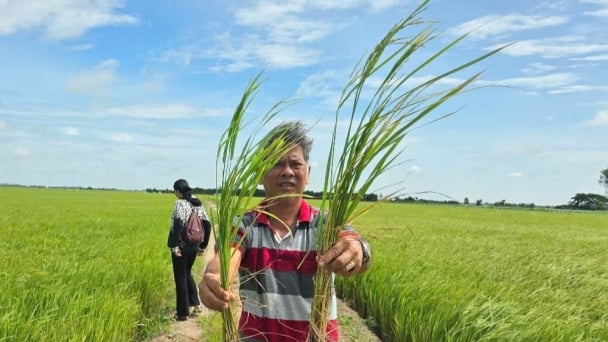
Instead of burning, microbial technology helps farmers turn millions of tons of straw into organic fertilizer, saving costs and protecting the environment.
/2025/08/28/5450-5-164042_320.jpg)
(VAN) From the risk of complete forest loss after the war, Vietnam has restored forest cover to more than 42%, becoming an international bright spot in forestry and sustainable development.
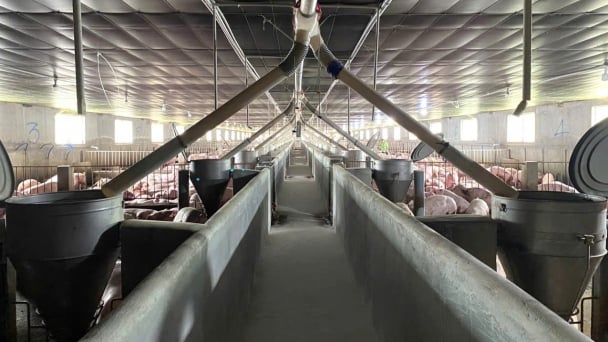
(VAN) Facing the risk of ASF outbreaks, Tay Ninh has strengthened disease prevention, and many farms have set up 'biological shields' to stabilize production.
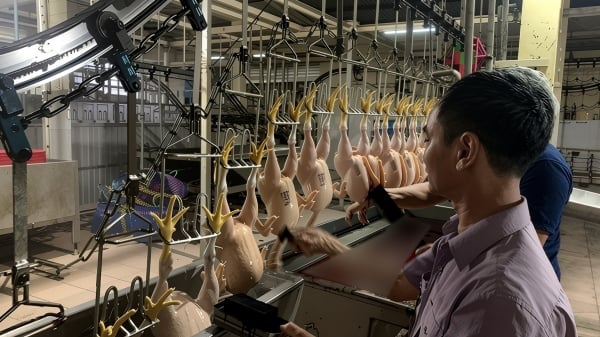
(VAN) With a high demand for livestock slaughter, the veterinary sector of Vinh Long has tightened control to prevent unsanitary food from entering the market.
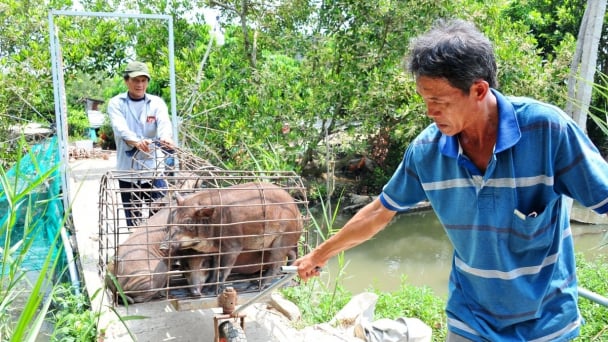
(VAN) Thanks to the linkage between boar-pig hybrid farming and business, farmers can proactively prevent epidemics, restock the herd, and secure output.